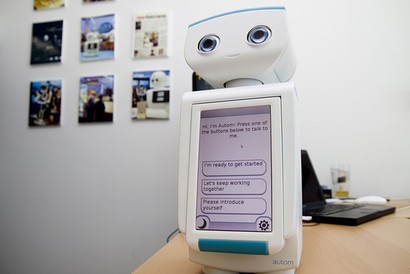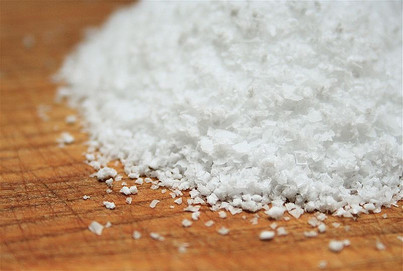|
Are protein requirements the same for women as they are for men? After studying men, Massey University scientists are seeing if protein also assists women athletes after strenourous exercise
0 Comments
Calorie counting, exercise advice and motivational tips... from a robot? Autom gives dieters advice about calorie counts, exercise goals and motivation. It builds up knowledge over time and can tailor questions and advice for individual needs. It's about to go on the market in the US.
Is salt really that bad for us? The advice that salt is bad for us and we should limit how much of it we should eat is on of the key public health messages today. The Ministry of Health, the Cancer Society, the New Zealand Nutrition Foundation and the New Zealand Stroke Foundation all give clear and unambiguous advice that eating too much salt can cause high blood pressure and increase the risk of heart disease, heart attacks, strokes, kidney disease, stomach cancer and osteoporosis. In the US the director for the Center of Disease Control (CDC) and prevention has gone so far as to say that reducing how much salt you eat is as important to your long term health as giving up smoking. But does this science behind all of these claims stack up? Gary Taubes, journalist and award winning of 'Why we get fat' (2011), and 'Good calories, Bad calories' (2007) doesn't think so. Listen to this fascinating interview below.
How many of us actually understand calories? When it comes to understanding calories many of us can be our own worst enemies. This is exacerbated by a food marketing designed to encourage us to eat more and a political system that does little to stop it. Dr Marion Nestle is a globally recognised expert in nutrition, food studies and public health and also a professor at New York university. In this radio interview Dr Nestle talks about her new book 'Why calories count: From science to politics' (co authored with Malden Nesheim) and explains what calories are, how they affect the body and why its so easy to eat more of them than we actually need.
It's Junk Thinking not Junk Food that's the problem! I'm not trying to plug Tony Ferguson but I think this ad is fantastic. It really gets to the root of the issue for so many of us struggling with long term weight management. The root of the issue being that to achieve long term success we must address, and ultimately change the way we think. This change in thinking will then alter how you act on the various decision points encountered everyday, which if done consistently will lead to a new you.
The difference really is in the long term vs short term approach. In the short term many of us can beat junk food. We are disciplined, we follow diets we don't enjoy, we exercise regularly all the while thinking it shouldn't be this hard. In the long term as many of us know, this doesn't always work. Why? Because this approach doesn't necessarily fit with who we are and how we think. We are going through the motions of a healthy lifestyle but it is in contrast with how we are still thinking. To achieve long term success we have to change the thing that will always be with us... Our thoughts and our thinking. Only then will we be able to incorporate a healthy lifestyle into day to day living. If you are what you eat, then what does it mean that the average American consumes 130 pounds of sugar a year? Sanjay Gupta reports on new research showing that beyond weight gain, sugar can take a serious toll on your health, worsening conditions ranging from heart disease to cancer. Some physicians go so far as to call sugar a toxin. From CBS News
Most of what you think you know about weight loss is wrong! You've been lied to! Bacon and eggs are good for you. Low fat milk is not. And sugar is poison, and it's addictive. So believes David Gillespie, author of Big Fat Lies: why the diet industry is making you sick, fat and poor, who is in conversation with Paul Barclay.
|
AuthorMatt Williams Archives
December 2015
Categories
All
|
|
Exercise Change© 2011-2022 ● [email protected] ● 021 107 1270 ● (int) +64 21 107 1270
|





 RSS Feed
RSS Feed
